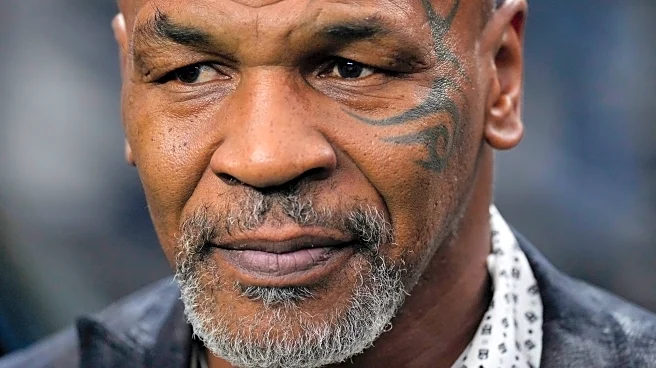Rapid Read • 8 min read
The U.S. lamb industry is grappling with ongoing debates over tariffs and trade practices, particularly concerning imports from Australia and New Zealand. Historically, the industry has faced challenges due to surging imports, which led to investigations by the U.S. International Trade Commission (USITC) in the early 1990s. Despite these investigations, tariffs were not imposed, resulting in a decline in domestic production. By 2006, imports surpassed domestic production, and as of 2024, lamb and mutton imports constituted about 70% of the total U.S. market supply. The introduction of hair sheep breeds has spurred some growth in the southern U.S., but the industry remains a smaller agricultural sector compared to others.
AD
The lamb industry's reliance on imports poses significant implications for domestic producers and the broader agricultural economy. The high percentage of imports affects local farmers who struggle to compete with international prices and practices. This situation raises questions about the sustainability of domestic lamb production and the potential need for protective measures such as tariffs. The debate over tariffs reflects broader concerns about fair trade practices and the impact of globalization on U.S. agriculture. Stakeholders in the industry, including producers and policymakers, must navigate these complex trade dynamics to ensure the viability of domestic production.
Future discussions may focus on the potential implementation of tariffs or other trade remedies to protect domestic producers. The industry could see increased advocacy for policy changes that address unfair trading practices and support local farmers. Additionally, there may be efforts to promote the growth of hair sheep breeds and other innovations to enhance domestic production capabilities. Stakeholders will likely continue to engage with policymakers to seek solutions that balance trade interests with the needs of U.S. producers.
The ongoing tariff debate in the lamb industry highlights broader ethical and economic considerations in international trade. It underscores the challenges faced by smaller agricultural sectors in competing globally and the importance of fair trade practices. The situation also reflects the complexities of balancing consumer demand for affordable imports with the need to support local industries. Long-term shifts in trade policy could influence the future landscape of U.S. agriculture and its role in the global market.
AD
More Stories You Might Enjoy













